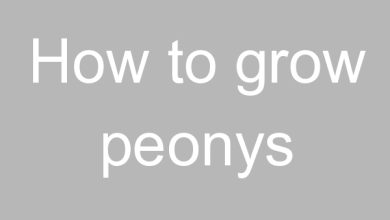Can caffeine raise blood pressure

Answer From Francisco Lopez-Jimenez, M.D.
Caffeine has the potential to induce a brief yet significant surge in blood pressure, irrespective of whether you currently have high blood pressure. The specific triggers for this sudden increase in blood pressure remain unclear. It’s important to note that the response to caffeine varies from individual to individual.
Contents
Does caffeine raise blood pressure?

To assess the impact of caffeine on your blood pressure, follow these steps:
- Before Consumption:
- Check your blood pressure.
- After Consumption (30 to 120 minutes):
- Reassess your blood pressure.
If you observe an increase of approximately 5 to 10 points, you might be sensitive to the blood pressure-elevating effects of caffeine.
Does espresso raise blood pressure?

Caffeine often takes the blame for elevating blood pressure, but the contrast between espresso and pure caffeine hints at a more complex scenario. This was evident in decaffeinated espresso, which didn’t increase blood caffeine levels but raised the average systolic blood pressure of nondrinkers by 12 mm Hg, nearly as much as the high-test brew.
Should you avoid coffee before a blood pressure test?
For an accurate blood pressure reading, many physicians recommend refraining from consuming coffee or other caffeine sources before the test. This standard advice is rooted in the belief that caffeine can significantly elevate blood pressure, potentially affecting the precision of the measurement.
Is coffee good for hypertension?

An analysis from 2017 revealed that higher coffee intake is linked to a slight reduction in hypertension. The study identified a 9% decreased risk with the consumption of 7 cups per day, and a further 1% risk reduction for each additional cup daily. Additionally, the review proposed that coffee’s beneficial compounds, like phenols, might exert a protective effect.
How long does caffeine raise your blood pressure?
Blood pressure fluctuations from caffeine intake usually manifest within 30 minutes, reach their peak in 1-2 hours, and may endure for over 4 hours.
Should I avoid caffeine if I have high blood pressure?
Mukherjee suggests that moderate consumption, equivalent to approximately four or five cups of coffee, is acceptable, but it is not recommended for individuals with severe hypertension. The American Heart Association advises against excessive coffee intake due to its potential to elevate blood pressure.
Will quitting coffee lower blood pressure?
Consuming caffeine causes a spike in blood pressure. Researchers believe it may hinder arteries from maintaining optimal width for healthy blood pressure. By eliminating caffeine, you avoid this blood pressure increase and potential associated complications.
Can drinking water lower blood pressure?
Consuming water contributes to normalizing blood pressure. Hydration, especially when experiencing dehydration, may aid in lowering blood pressure. While not a treatment for high blood pressure, adequate water intake supports maintaining healthier blood pressure levels, whether one has hypertension or not.
How can I quickly lower my blood pressure?

Tricks to Lower Blood Pressure Instantly:
- Meditate or practice deep breathing: Relaxation techniques can slow your heart rate and reduce blood pressure.
- Reduce stress levels: Implement stress-reducing strategies for immediate impact.
- Take a warm bath or shower: A soothing bath can contribute to the lowering of blood pressure.
What is the best drink for high blood pressure?

Nonetheless, there’s evidence that the following six drinks may help lower blood pressure:
- Skim milk: Rich in potassium, calcium, and magnesium, known minerals for blood pressure reduction.
- Tomato juice.
- Beet juice.
- Hibiscus tea.
- Pomegranate juice.
- Grapefruit juice.
Does walking lower blood pressure?
Engaging in regular aerobic exercise, such as walking, enhances cardiovascular function. As your heart pumps faster during exercise, more oxygen is taken in, and increased blood flow is directed to your muscles. Research indicates that maintaining a consistent walking routine can contribute to lowering blood pressure.
Key Takeaways on Caffeine and Blood Pressure
In conclusion, the relationship between caffeine and blood pressure is nuanced. While caffeine can cause a short-term increase in blood pressure, individual responses vary. Moderation appears to be key, with recommended limits to avoid potential adverse effects. Understanding the impact of caffeine on blood pressure is essential, and consulting with healthcare professionals can provide personalized guidance. As with many health considerations, balance and awareness play crucial roles in optimizing well-being.




